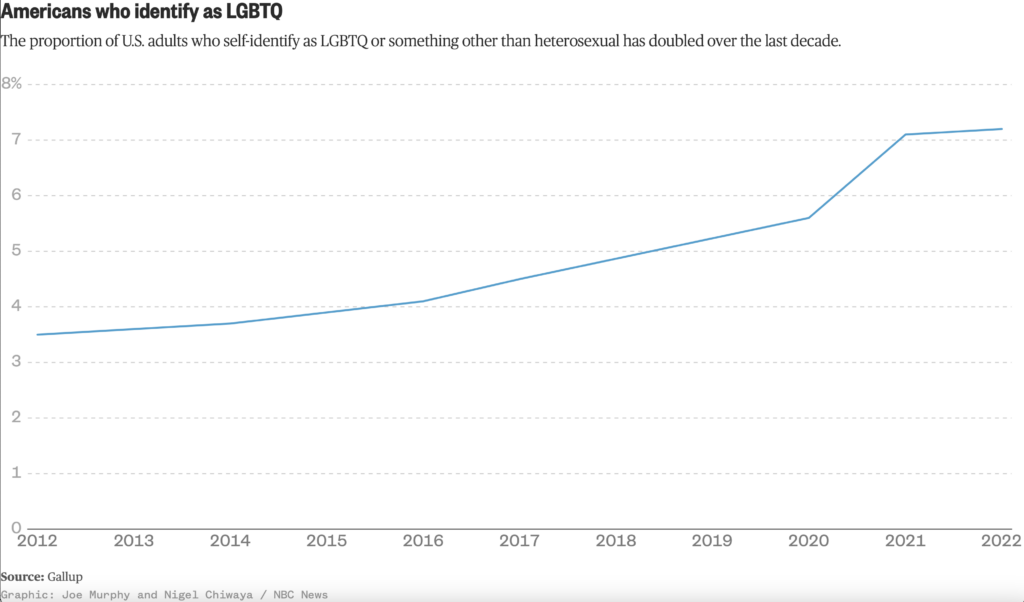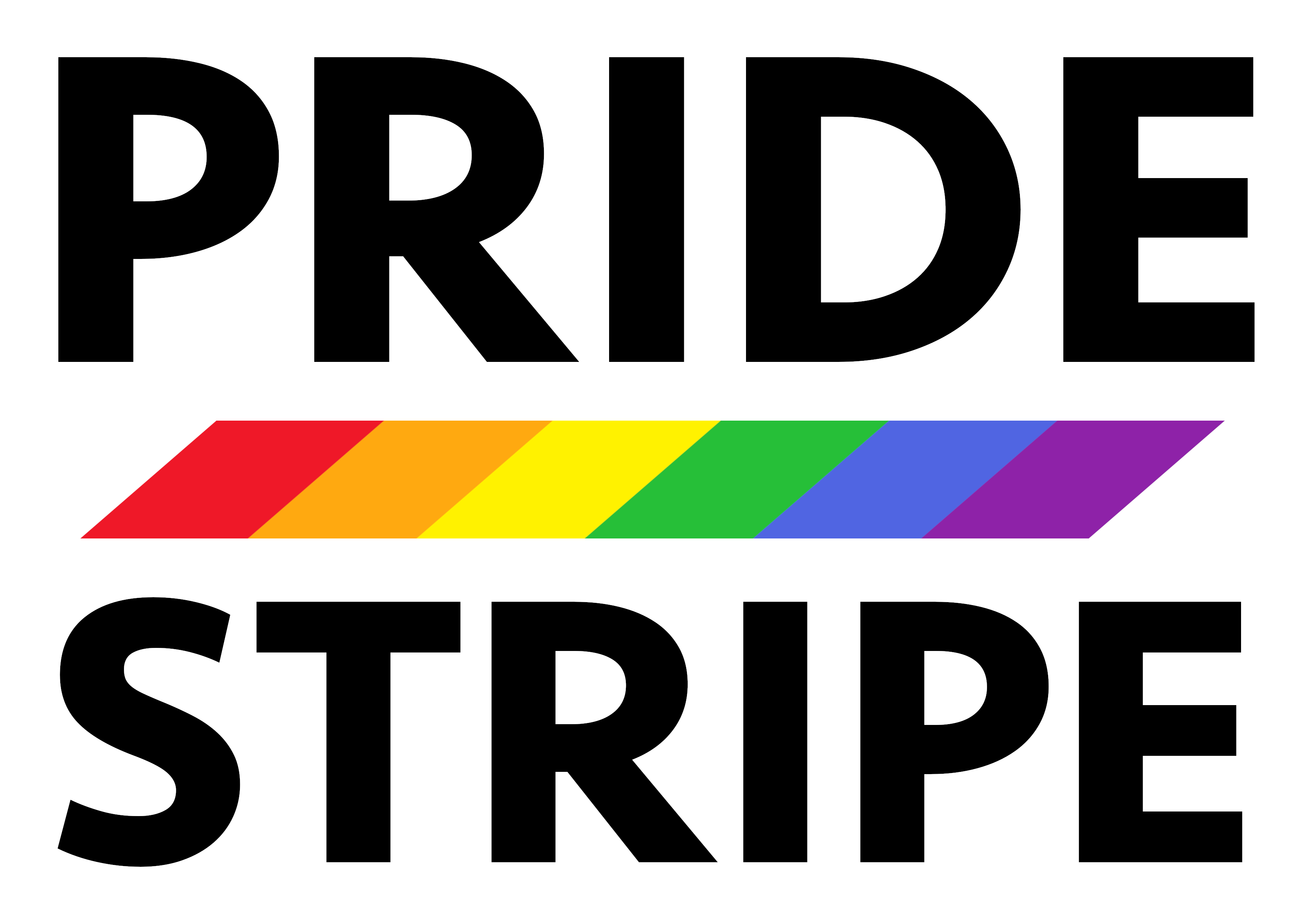A new Gallup poll released in February 2023 has once again confirmed what many already recognize: LGBTQ+ visibility and acceptance are growing at an unprecedented rate. The latest data reveals that 7.2% of U.S. adults now identify as LGBTQ+, marking a steady increase from previous years and underscoring a profound shift in how Americans understand and express their identities.
One of the most striking findings from the Gallup report is the generational divide in LGBTQ+ identification. Generation Z adults (born between 1997 and 2004) continue to lead the way, with an estimated 20% identifying as LGBTQ+. Millennials (born between 1981 and 1996) follow closely, with around 11% identifying as part of the community. In contrast, older generations, such as Baby Boomers and those from the Silent Generation, report significantly lower levels of LGBTQ+ identification, reflecting the societal barriers and stigmas they have faced throughout their lifetimes.

This generational shift is not just about numbers; it’s about culture, representation, and the progress of equality movements. Younger generations have grown up in a world where LGBTQ+ people are more visible in media, politics, and daily life. They have benefited from groundbreaking legal victories, such as marriage equality, anti-discrimination protections, and greater awareness of gender diversity. As a result, more people feel safe coming out and living authentically.
The poll also sheds light on the diverse identities within the LGBTQ+ community. The majority of respondents who identified as LGBTQ+ described themselves as bisexual (over 50%), followed by those who identified as gay, lesbian, or transgender. The significant percentage of bisexual individuals challenges outdated stereotypes and highlights the need for more inclusive discussions around sexuality.
Despite this progress, the Gallup poll is also a reminder of the work that remains. While society has made great strides, many LGBTQ+ individuals still face discrimination, mental health disparities, and legislative attacks on their rights—particularly in the areas of transgender healthcare and LGBTQ+ education in schools. The rise in identification should serve as a call to action to protect and expand the rights of LGBTQ+ individuals, ensuring that future generations can come out without fear of backlash.
The increasing numbers of LGBTQ+ Americans should not be dismissed as a trend but recognized as evidence of a society moving toward authenticity and inclusion. With each new generation, the barriers to acceptance continue to erode, making way for a future where everyone can live and love openly.
As we look ahead, it is crucial to continue advocating for policies that support LGBTQ+ individuals, promoting education that fosters understanding, and uplifting voices within the community. The Gallup poll is not just a collection of statistics—it is a testament to progress, resilience, and the unstoppable momentum of equality.

